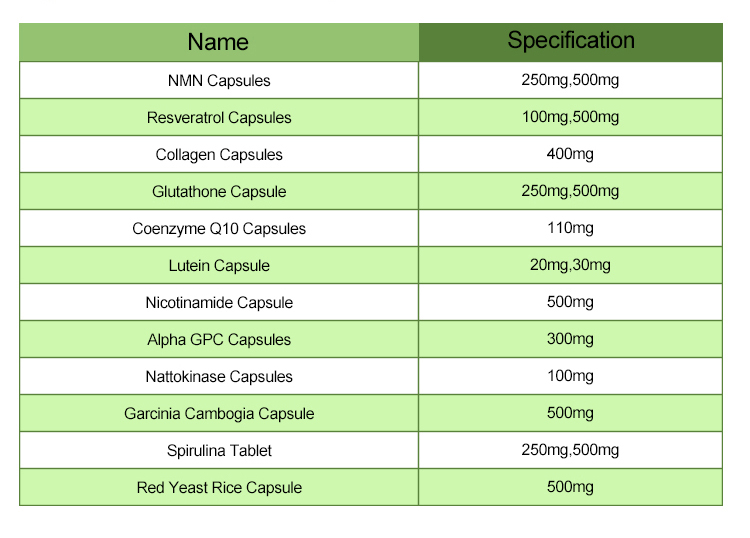Garcinia Cambogia extract capsules typically contain the active ingredient hydroxycitric acid (HCA), which is derived from the fruit rind of the Garcinia Cambogia plant. In addition to HCA, other ingredients may be included in the capsules to aid in absorption, stability, or to serve as fillers or binders. These additional ingredients can vary depending on the specific brand or formulation of the supplement. However, some common ingredients found in Garcinia Cambogia extract capsules may include:
1.Garcinia Cambogia Extract (standardized to contain a certain percentage of HCA)
2.Fillers or binders (such as cellulose, gelatin, or rice flour)
3.Potassium (often included to aid in the absorption of HCA)
4.Calcium (also sometimes added to enhance HCA absorption)
5.Chromium (may be included to help regulate blood sugar levels)
6.Magnesium stearate (used as a lubricant or flow agent)
7.Silicon dioxide (used as an anti-caking agent)
8.Other vitamins or minerals (depending on the specific formulation)
It’s important to note that the purity and quality of Garcinia Cambogia extract can vary between brands, so it’s advisable to carefully read the label and consult with a healthcare professional before starting any new supplement regimen. Additionally, individuals should be aware of potential side effects and interactions with other medications before taking Garcinia Cambogia extract or any dietary supplement.

The application of Garcinia Cambogia Extract Capsules
Garcinia Cambogia extract capsules have gained popularity as a potential weight loss supplement. The active ingredient in Garcinia Cambogia extract is hydroxycitric acid (HCA), which is believed to inhibit an enzyme called citrate lyase, which plays a role in the body’s fat production process. Here are some potential applications and considerations regarding the use of Garcinia Cambogia extract capsules:
Weight Loss: Garcinia Cambogia extract is primarily marketed as a weight loss supplement. Some studies suggest that HCA may help to suppress appetite and inhibit fat storage, leading to weight loss. However, research results have been mixed, and more robust clinical trials are needed to confirm its effectiveness.
Appetite Suppression: Some users report that Garcinia Cambogia extract helps to reduce appetite, leading to decreased food intake. This effect may be attributed to the increase in serotonin levels in the brain, which could promote a feeling of fullness and satiety.
Fat Metabolism: Garcinia Cambogia extract may also support fat metabolism by inhibiting the enzyme citrate lyase, which converts excess carbohydrates into fat. By blocking this enzyme, it may help the body to utilize carbohydrates more efficiently for energy production rather than storing them as fat.
Blood Sugar Regulation: Some research suggests that Garcinia Cambogia extract may help regulate blood sugar levels by improving glucose metabolism. This effect could be beneficial for individuals with insulin resistance or those at risk of type 2 diabetes. However, more studies are needed to confirm its efficacy in this regard.
Cholesterol Management: There is some evidence to suggest that Garcinia Cambogia extract may help lower LDL (bad) cholesterol levels and increase HDL (good) cholesterol levels. This could potentially reduce the risk of cardiovascular disease, although more research is needed to support these claims.

Exercise Performance: Some individuals use Garcinia Cambogia extract as a supplement to enhance exercise performance and endurance. While there is limited evidence to support this claim, some users believe that it can increase energy levels and reduce fatigue during physical activity.
Liver Health: Preliminary studies suggest that Garcinia Cambogia extract may have hepatoprotective properties, meaning it could help protect the liver from damage. However, more research is needed to understand the mechanisms involved and its potential benefits for liver health.
It’s important to note that while Garcinia Cambogia extract capsules are widely available as a dietary supplement, their efficacy and safety have not been conclusively established. Additionally, individual responses to the supplement may vary, and it’s essential to consult with a healthcare professional before starting any new supplement regimen, especially if you have underlying health conditions or are taking medications.
